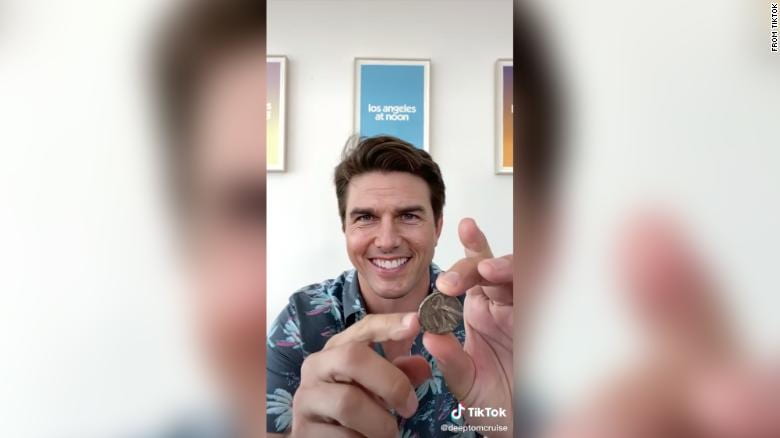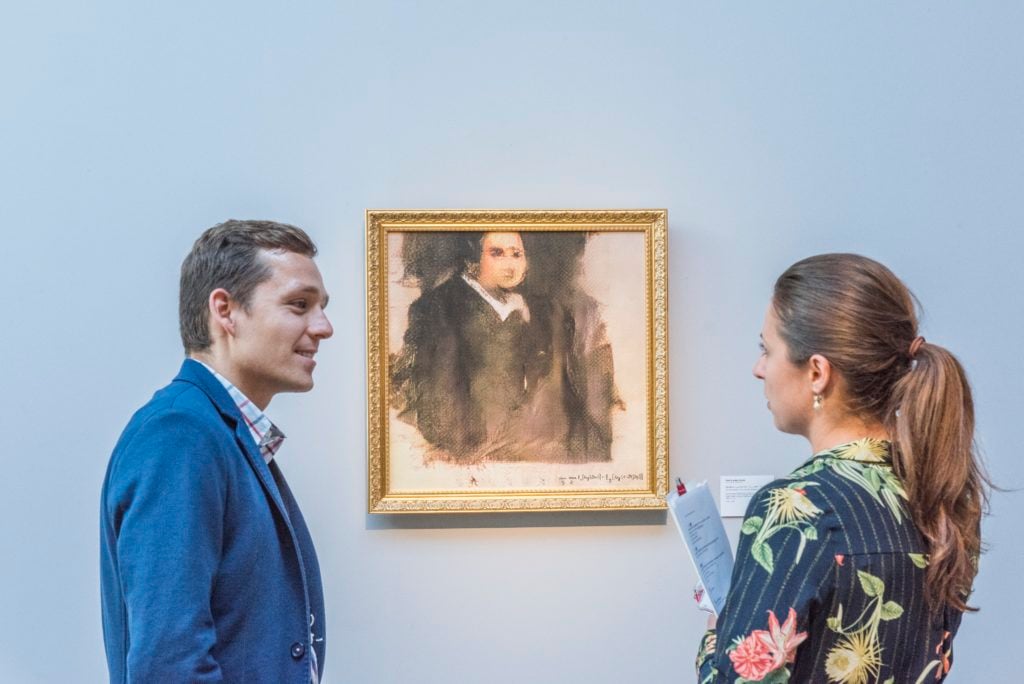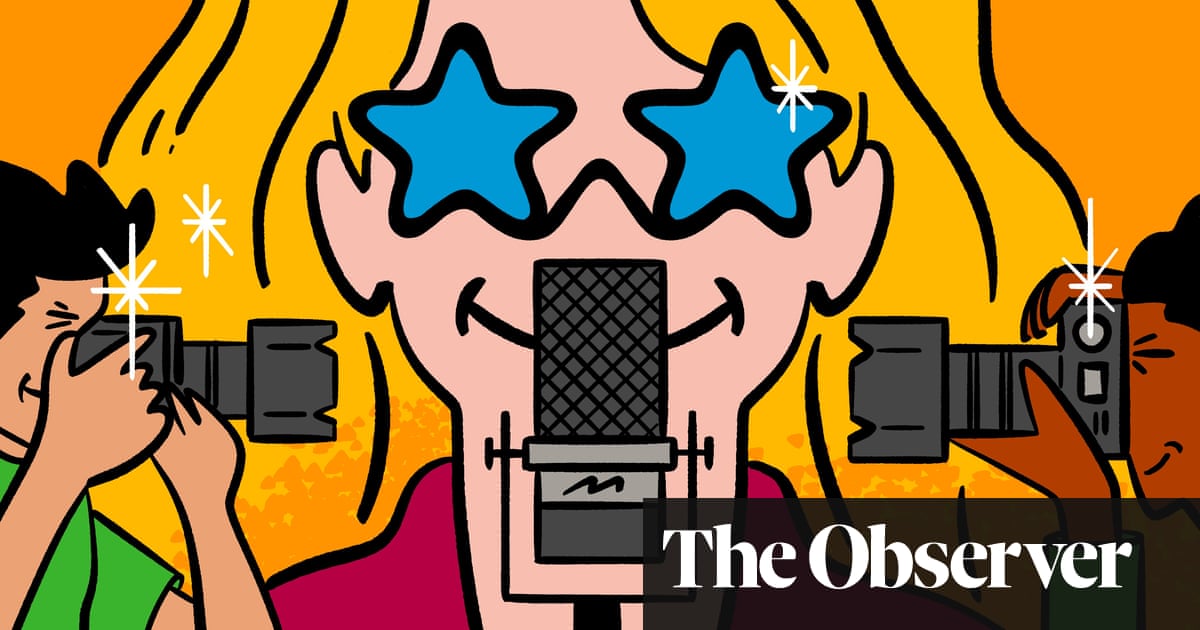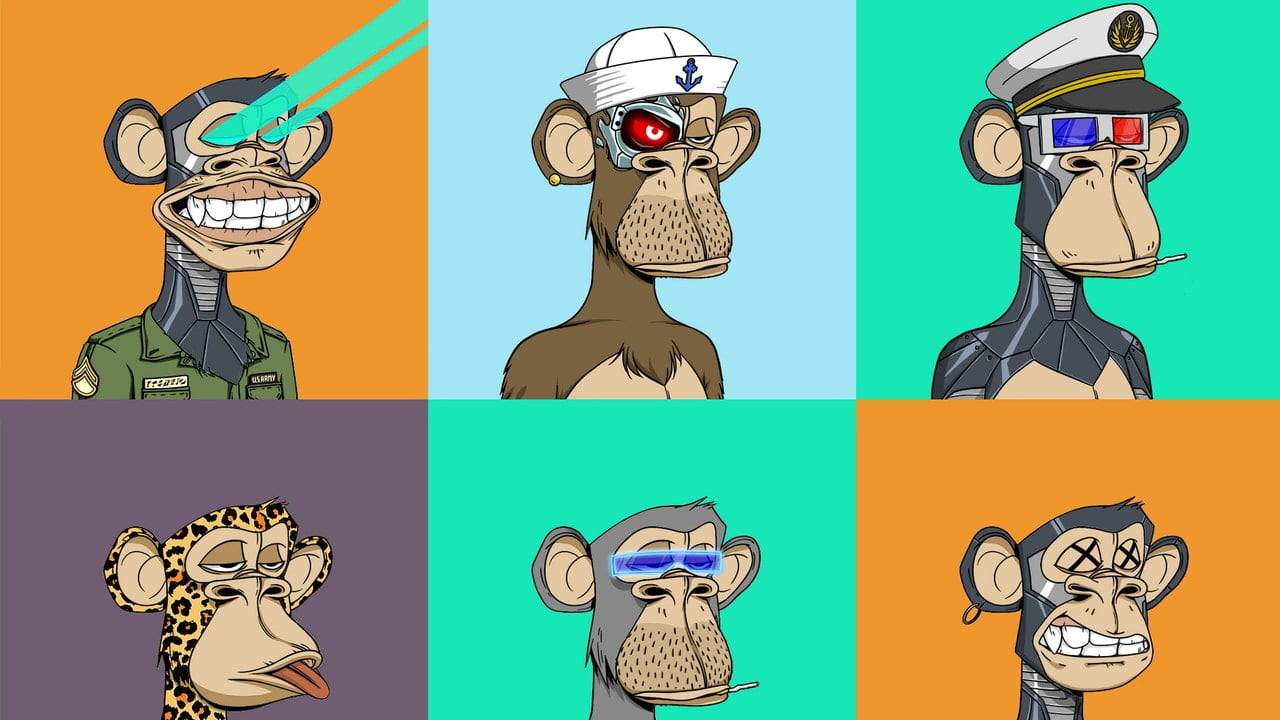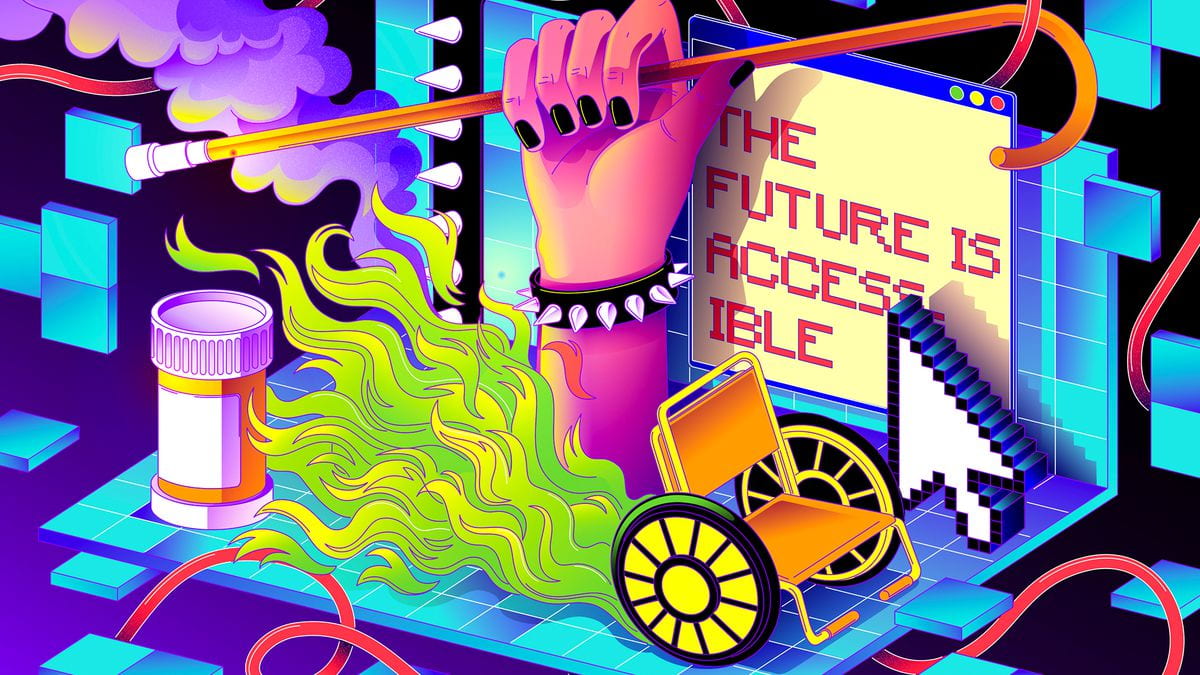Roleplaying a Communist Cop in the Ruins of Revolution
Disco Elysium is the roleplaying game as interactive novel, a sustained exercise in eschewing the flashy graphics of big-budget games in favor of dense prose. This prose appears in a dedicated window on the right side of the screen, a box that appears every time you converse with a character or interact with an object in the world.
Source: Roleplaying a Communist Cop in the Ruins of Revolution
How Amazon third-party sellers pester customers who leave bad reviews
When you buy something on Amazon, the e-commerce giant isn’t always the one making the sale; an estimated half of all products sold on Amazon come from third-party sellers.
Source: Go read this look at how Amazon third-party sellers pester customers who leave bad reviews
How a deepfake Tom Cruise on TikTok turned into a very real AI company
Earlier this year, videos of Tom Cruise started popping up on TikTok of the actor doing some surprisingly un-Tom-Cruise-like stuff: goofing around in an upscale men’s clothing store; showing off a coin trick; growling playfully during a short rendition of Dave Matthews Band’s “Crash Into Me.”
America’s Investing Boom Goes Far Beyond Reddit Bros
Robinhood traders have earned the most attention, but they’re only part of a larger story about class stagnation and distrust.
Source: America’s Investing Boom Goes Far Beyond Reddit Bros
Big Oil spent $10 million on Facebook ads — to sell what, exactly?
Online advertisers are always trying to sell you something, and in the case of slip-on sneakers or leather handbags, that something is pretty clear. But other times, the motive behind a sponsored post is less transparent. Why, for instance, are oil companies buying prime space in your social media feed to prattle on about “innovative” climate solutions and visions of a “lower-carbon future”?
Source: Big Oil spent $10 million on Facebook ads — to sell what, exactly?
Artificial Intelligence May Have Cracked the Code to Creating Low-Priced Works on Canvas
Customers scroll through a selection of artwork and click the designs they like, in order to “show Artifly your style.” Then, the user clicks a button reading “Make My Art,” Artifly (the name of which is meant to evoke the phrase “Art on the Fly”) becomes familiar with your selections—and then near instantly, in about a minute, it creates a brand-new personalized artwork. The user then has the option, though not the obligation, to buy a bespoke piece of AI art.
The push for a “PBS for the internet”
The concept of a new media ecosystem that’s non-profit, publicly funded and tech-infused is drawing interest in policy circles as a way to shift the power dynamics in today’s information wars. Why it matters: Revamping the structure and role of public media could be part of the solution to shoring up local media, decentralizing the distribution of quality news, and constraining Big Tech platforms’ amplification of harmful or false information.
Apple Walks a Privacy Tightrope to Spot Child Abuse in iCloud
With a new capability to search for illegal material not just in the cloud but on user devices, the company may have opened up a new front in the encryption wars.
Source: Apple Walks a Privacy Tightrope to Spot Child Abuse in iCloud
Why regulators should treat stablecoins like banks
Twelve years after bitcoin was born, governments are still struggling to cope with cryptocurrencies. Britain has banned Binance, a crypto exchange and the European Union’s regulators want transactions to be more traceable. On August 3rd Gary Gensler, the head of America’s Securities and Exchange Commission, said cryptocurrency markets were “rife with fraud, scams and abuse” and called on Congress to give his agency new regulatory powers.
Can you recycle a hard drive? Google is quietly trying to find out
At a laboratory inside a Google data center in Mayes County , Oklahoma, researchers spent the fall of 2019 disassembling old hard disk drives by hand in order to extract a 2-inch-long component known as the magnet assembly. Consisting of two powerful rare earth magnets, the magnet assembly is a critical muscle within the hard drive, controlling an actuator arm that allows the device to read and write data.
Source: Can you recycle a hard drive? Google is quietly trying to find out
Charles Bukowski: poet, Twitter punch line—and internet visionary
Before he’d become a posthumous social media symbol of Reddit-ish male angst, Bukowski wrestled with the pros and cons of a digital world. Social media users are again debating the merits of Charles Bukowski, the late Los Angeles-based writer known for his poetry describing a coarse, often boorish version of American masculinity replete with drinking, gambling, and not-always-successful womanizing.
Source: Charles Bukowski: poet, Twitter punch line—and internet visionary
Streaming space tourism is the new reality TV
When SpaceX launches its first all-civilian crew into space later this fall and takes a multi-day trip circling the Earth, humanity can follow along online thanks to an exclusive documentary deal Netflix sealed with Elon Musk’s private space company.
More than 450 airlines can now use IBM’s blockchain-based vaccine passport
IBM Digital Health Pass uses blockchain encryption technology, eliminating the need to collect and store personal data. This allows user to manage what information they want to share through their smartphones. All border agents see is a prompt for whether a traveler is cleared for travel or not.
Source: More than 450 airlines can now use IBM’s blockchain-based vaccine passport
The Metaverse Has Always Been a Dystopian Idea
Silicon Valley CEOs keep hailing its imminent arrival as they hawk digital goods, but the metaverse was a dystopian idea from its inception.
Training self-driving cars for $1 an hour
To master the roads, autonomous vehicles need lots of data. Workers everywhere from Kenya to Venezuela are providing it.
The slow collapse of Amazon’s drone delivery dream
Well over 100 employees at Amazon Prime Air have lost their jobs and dozens of other roles are moving to other projects abroad as the company shutters part of its operation in the UK. Insiders claim the future of the UK operation, which launched in 2016 to help pioneer Amazon’s global drone delivery efforts, is now uncertain.
Why Twitter wants ethical hackers to fix its algorithmic biases
Twitter is applying the bug bounty model to machine learning. The micro-blogging site has launched the industry’s first algorithmic bias bounty competition. The challenge was created to identify potential harms in Twitter’s notorious image cropping algorithm, which was largely abandoned after exhibiting gender- and race-based biases.
Source: Why Twitter wants ethical hackers to fix its algorithmic biases
Questlove on Restoring Black Music History and Making One of the Year’s Best Films
The Roots drummer discusses Summer of Soul, his new documentary about the 1969 Harlem Cultural Festival, and the ongoing fight to give Black musicians their rightful due.
Source: Questlove on Restoring Black Music History and Making One of the Year’s Best Films
How France tamed Google
France has hit Google with fines totalling €720 million this year. The money is meaningless – but the changes could be profound
Source: How France tamed Google
Here’s how police can get your data — even if you aren’t suspected of a crime
If you’ve ever read a privacy policy, you may have noticed a section that says something about how your data will be shared with law enforcement, which means if the police demand it and have the necessary paperwork, they’ll likely get it.
Source: Here’s how police can get your data — even if you aren’t suspected of a crime
Listen up: why indie podcasts are in peril
As big spenders such as Amazon and Spotify fill our ears with more commercial, celebrity-driven fare, can grassroots, diverse shows survive?
You Are Already Having Sex With Robots
The real robo-sexual revolution will be, and already is, more software than hardware, and it’s the version of this story fewer people are talking about.
Banned Chinese Facial Recognition Technology Was Used to Search for Minneapolis Protesters
One night in the Twin Cities, shortly after the killing of George Floyd, someone set a fire in a Goodwill. That led to an international search for the culprits — and it exposed a growing system of global surveillance.
Source: Banned Chinese Facial Recognition Technology Was Used to Search for Minneapolis Protesters
‘Black Widow’ Legal Battle: Inside the Fallout After Scarlett Johansson Sues Disney
Epic legal battles almost never get this massive. But on Thursday, one of the biggest stars in Hollywood sued the biggest entertainment company on the planet, sending shockwaves across an entertainment landscape already reeling from months of disruptions and shifting paradigms.
Source: ‘Black Widow’ Legal Battle: Inside the Fallout After Scarlett Johansson Sues Disney
Gawker Is Back From the Dead: Site Relaunches Under Bustle Digital Group
Gawker, after lying dormant for almost five years, has risen from the ashes. The news and gossip site was relaunched Wednesday under the auspices of Bustle Digital Group, whose founder and CEO Bryan Goldberg bought the assets of Gawker for $1.35 million in a bankruptcy auction in 2018.
Source: Gawker Is Back From the Dead: Site Relaunches Under Bustle Digital Group
‘Woodstock ’99’ Documentary: A Long Day’s Journey Into ‘Break Stuff’
A new HBO doc looks back on the disaster that was three days of music, rage and toxic masculinity run amuck.
Source: ‘Woodstock ’99’ Documentary: A Long Day’s Journey Into ‘Break Stuff’
Why Bored Ape Avatars Are Taking Over Twitter
Bored Ape Yacht Club, which launched in April, is a strange combination of gated online community, stock-shareholding group, and art-appreciation society.
We Need a New Term for Video Games
We’re seeing a ton of new games, and many of them blur the lines between video games and other types of activities.
A People’s History of Black Twitter, Part III
By the end of the Obama era, Black Twitter seemed like a fully realized world, with its own codes and customs. As it reached new levels of visibility and influence, though, deep-rooted problems began to reassert themselves. Users were hardly surprised.
How the long-dead public-television painter Bob Ross became a streaming phenomenon (and kicked up plenty of dirt in the process)
Thanks to modern platforms like Twitch and Pluto TV, Ross has become a mainstay of the digital universe — particularly during the pandemic, when the popularity of a new Bob Ross channel skyrocketed as people trapped at home turned to their televisions for therapy.
Climate change is literally melting vinyl records
Recent ultra-hot weather has been causing vinyl records to warp during shipping to record stores and consumers. The melting is particularly hard on independent labels who have limited resources.
The teen tycoons of Depop
Young people can make real money selling vintage clothes online — if they can stay on the right side of the algorithm
Source: The teen tycoons of Depop
College athletes have long been influencers. Now they’re getting paid like them.
When America’s college athletes could begin profiting off their personal brand for the first time this summer, Lauren Burke was ready. The 22-year-old rising senior on the University of Texas softball team had made a name for herself on the field and off.
During the pandemic year’s shortened 2020 softball season, Burke racked up a monstrous .453 batting average, ranking second in the Big 12 conference. But it’s likely that most of her fans know her from TikTok. Burke, who mainly posts about softball and fitness, has 400,000 followers on TikTok and nearly 100,000 on Instagram.
Source: College athletes have long been influencers. Now they’re getting paid like them.
Japan’s virtual YouTubers have millions of real subscribers — and make millions of real dollars
How the pandemic mainstreamed VTubers, Japan’s fictional YouTube celebrities.
Source: Japan’s virtual YouTubers have millions of real subscribers — and make millions of real dollars
How a teen punk led a movement for disabled people online
From Tumblr to TikTok, young disabled people are deciding how to represent themselves
Source: How a teen punk led a movement for disabled people online
How Olympic Tracking Systems Capture Athletic Performances
This year’s Olympic Games may be closed to most spectators because of COVID-19, but the eyes of the world are still on the athletes thanks to dozens of cameras recording every leap, dive and flip. Among all that broadcasting equipment, track-and-field competitors might notice five extra cameras—the first step in a detailed 3-D tracking system that supplies spectators with near-instantaneous insights into each step of a race or handoff of a baton.
Source: How Olympic Tracking Systems Capture Athletic Performances
BuzzFeed Is Going Public. Now What for Vox Media, Group Nine and Vice?
The digital media companies that once seemed to have a lock on the future are making plans to get bigger and pay back their investors.
Source: BuzzFeed Is Going Public. Now What for Vox Media, Group Nine and Vice?
How Wattpad changed the way we think about writing
Founded in 2006, Wattpad has grown far beyond the scale of my local library. The platform currently boasts 94 million users and more than a billion uploaded stories, ranging from historical tales to outright fanfiction. In its 15 years of existence, Wattpad stories have gained a reputation in the online literary community — a landfill of self-insert fanfiction to some, and a treasure trove of hidden gems to others.
Virtual Reality Is the Rich White Kid of Technology
For decades, VR has failed to live up to expectations. Yet somehow, it keeps receiving more chances and more resources.
QR Codes Are Here to Stay. So Is the Tracking They Allow.
Fueled by a desire for touchless transactions, QR codes popped up everywhere in the pandemic. Businesses don’t want to give them up.
Source: QR Codes Are Here to Stay. So Is the Tracking They Allow.
%2Fhttps%253A%252F%252Fdev.lareviewofbooks.org%252Fwp-content%252Fuploads%252F2021%252F07%252Fdiscoelysium.png&w=1920&q=75)
